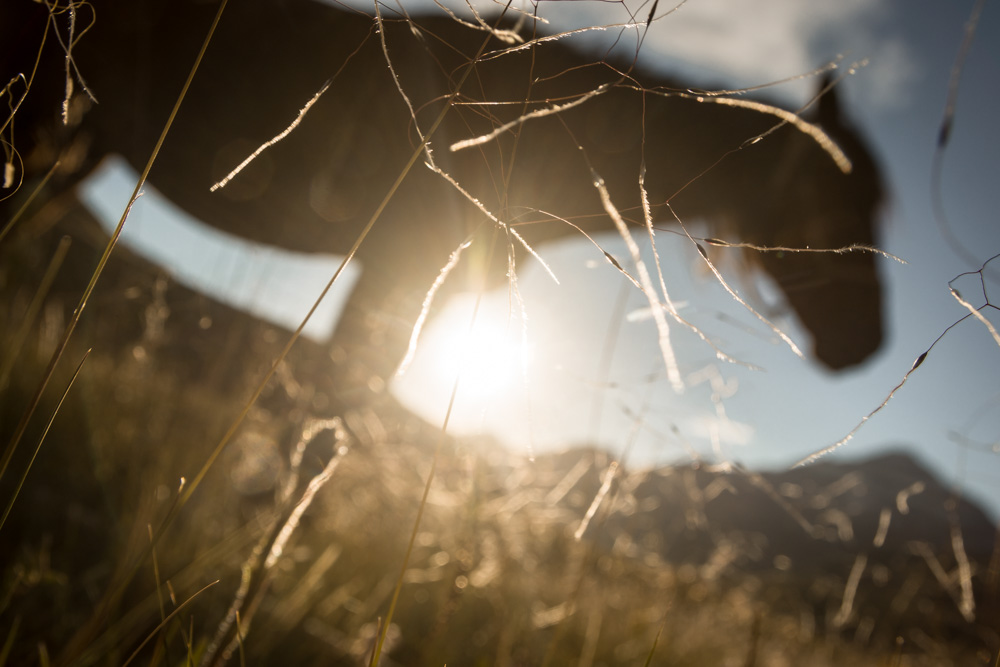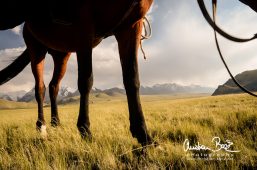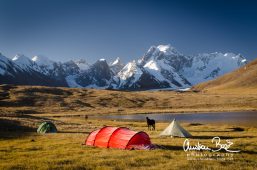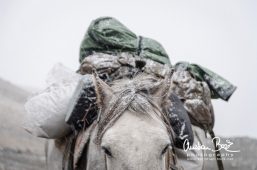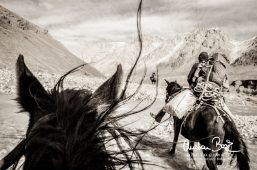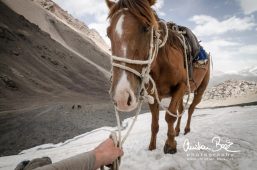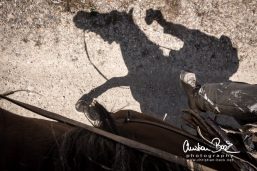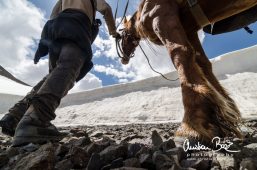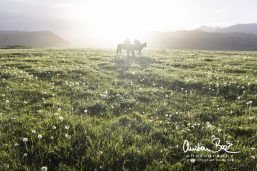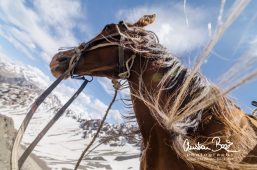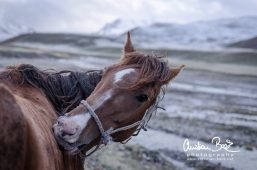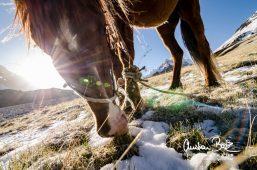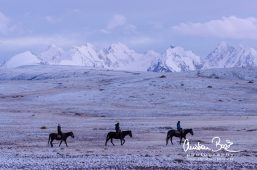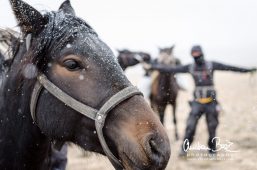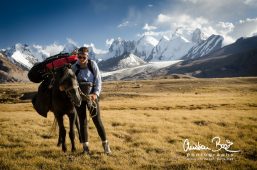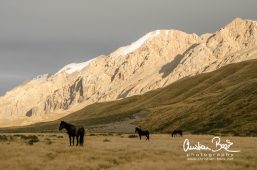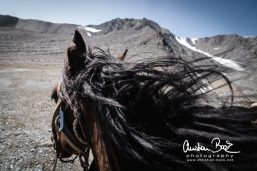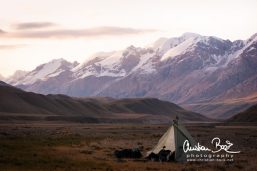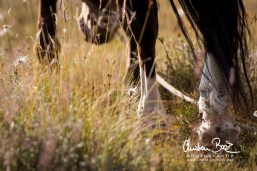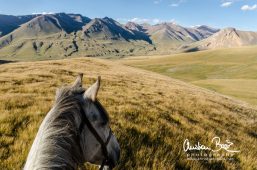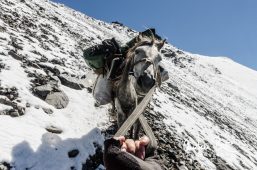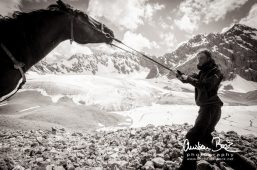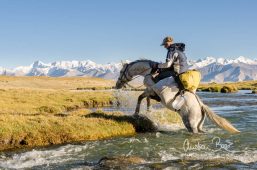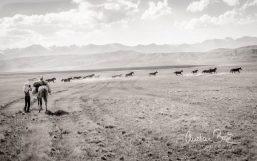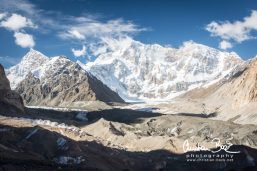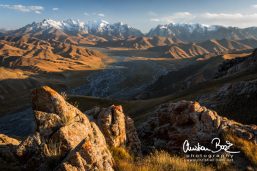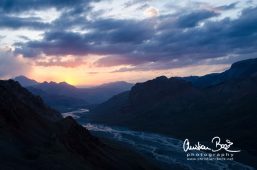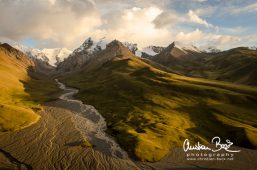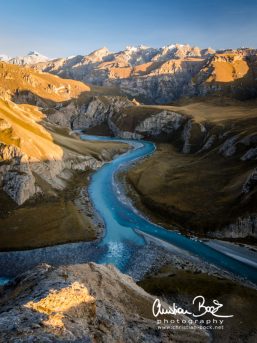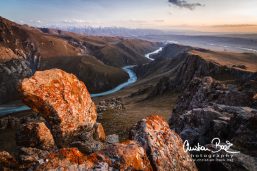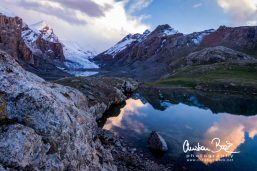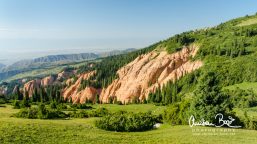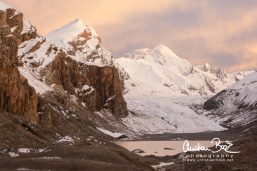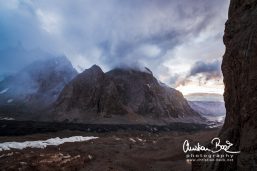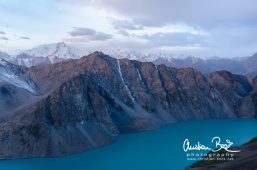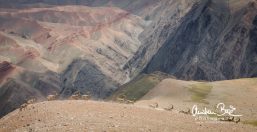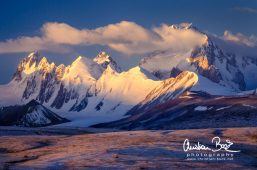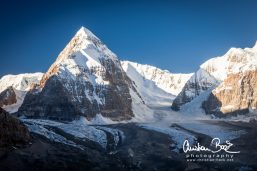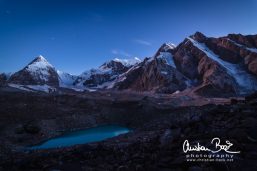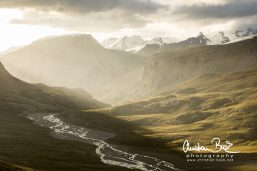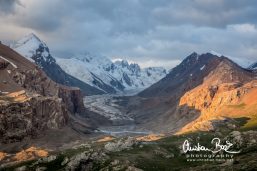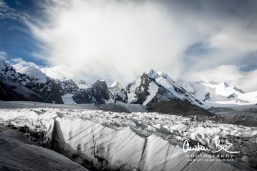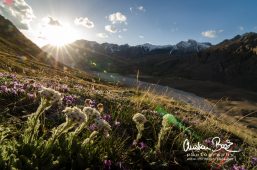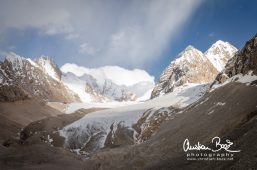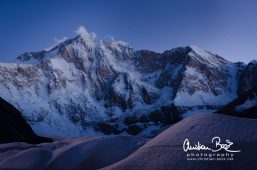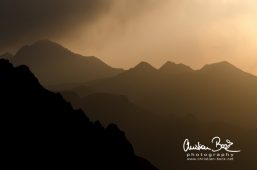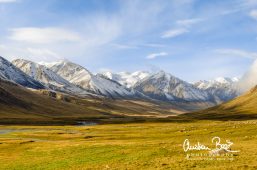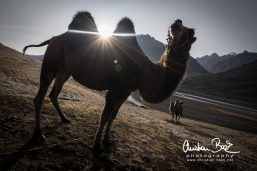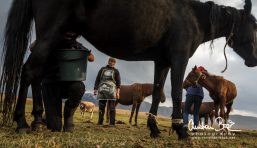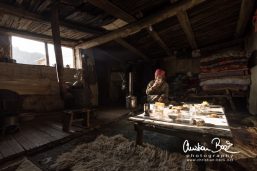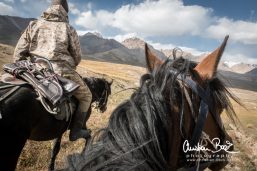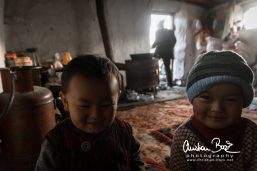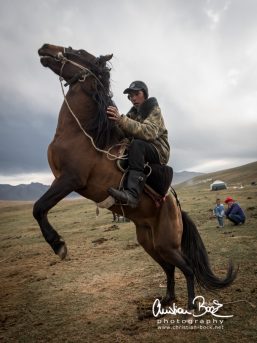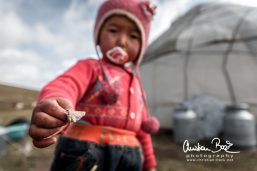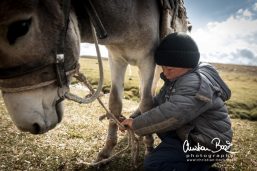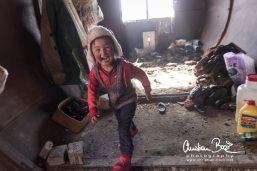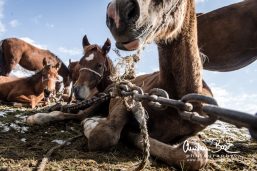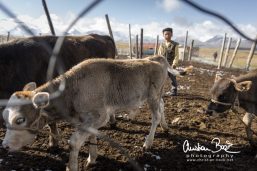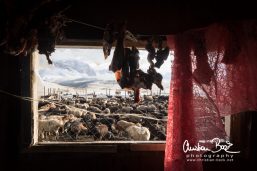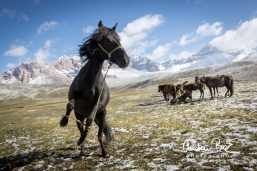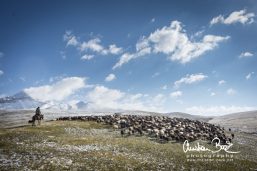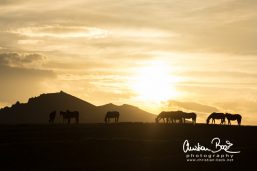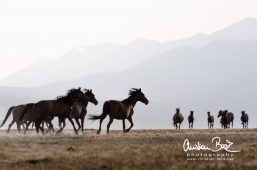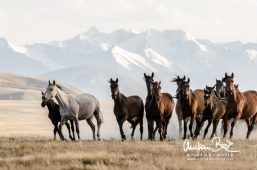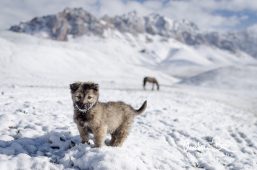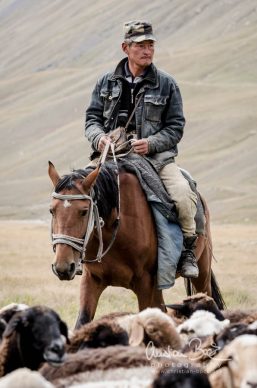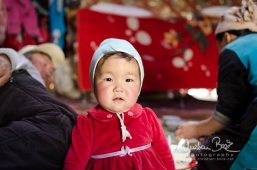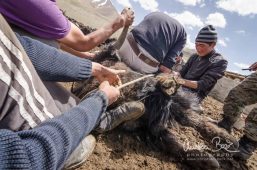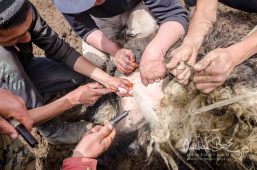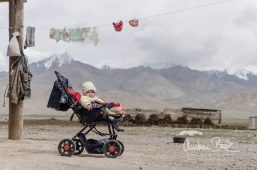With horses into solitude
In 4 consecutive summers from 2012 to 2015 I covered about 4000km in the wildest parts of the Kyrgyz Tien Shan Mountains. In the first year I traveled by mountain-bike. On that trip though I discovered the great potential for horse-travel through this area. The high-altitude regions south of Issyk-Kul Lake, stretching all the way to the main spine of the Tien Shan Range at the Chinese border in the south, hardly drop below 3000m, are well water-fed by glaciers, provide abundant grassy pastures and belong to the wildest and remotest regions in Central Asia.
One year later, together with two friends and three horses, some luck and good connections, this dream became true. We packed food for 6 weeks and made our way through the highlands from Karakol to Naryn, filled up our stock of food and went on for another 5 weeks. After this extraordinary summer I completely fell in love with this way of travel. The perception of freedom that you gather on such long distances is elevating, and very different from what I experienced before on long treks on foot in Australia and North America, lasting up to 2-3 weeks maximum. Most importantly, you don’t have to stick to a stringent plan. The only constraint is a resupply in a couple of weeks, somewhere. All there is are the horses, a map, the mountains, a lot of capacity to experiment, venture into the unknown and to explore the places you feel drawn to.
Over these years, I spent also about 12 weeks on my own in these mountains. It was the first time for me to be such a long and intense period in solitude together with an animal partner that I had to rely on. When loneliness, serenity, physical exhaustion, illness and happiness had to be expressed I automatically did so to my horses, in a way as I would to a human counterpart. To me this appears as a marvelous personal experience of exposing the basic psychological human needs, when being stripped all commodities and comforts that go beyond basic survival.
The tranquility of the Mountains
It’s fascinating how busy ones’ mind turns out to be when everything falls silent and no form of mental distractions or social interactions are possible over multiple weeks. It’s a mental challenge in its own right to slow down and keep yourself from floating away into a different world, but to stay in the moment. Sometimes I reached peculiar meditative states of mind, in which the tranquility of relaxed walking melted together with the continuous sounds of the horses’ hooves, inspired by the steadiness and beauty of the mountains. It’s like falling in some sort of a trance of the presence, with the pondering about future and past evaporated.
The “shocks” were penetrating, when after these summers I arrived back to Europe. At first glance the world that once was so familiar became a foreigner. Somebody you once knew, but forgot, and in a way you refuse to get to know this foreigner again. As if something very alien permeates the world. It’s the corset of time that hangs in the air – or actually the corset of having none. Sort of a hyper-excitation, which makes you feel uncomfortable and raises the prejudgmental impression that people seem to be driven by something that is not in line with their nature. Might some of this very personal emotional responses point to a truth or not – the difference in experience of the world at returning back home was always very profound for me.
Cultural clashes and inspirations
During these years I discovered an interesting paradox in my relation to the local population. One of the reasons why I learnt to love this place so much is that many people (especially in the mountains), have not yet been taken by what I experienced as something partly destructive in my western life: the burden of time. Among the shepherds in the Kyrgyz highlands you’ll hardly find somebody being stressed about that something has to be “finished” within a specific amount of days, let alone hours or minutes. I very much appreciated this perspective as an inspiration away from a stringent and stressful life. These attitudes created a wonderful relaxed atmosphere and it felt like that I was always genuinely welcome to have a tea, a talk or a meal – leaving aside that for sure many people in the remote valleys just long to have some exchange with the outside world.
On the other hand though if you have to impose on them a more or less rigid time-frame to organize horses for example, with high likelihood you’ll bump into some troubles. Depending on your perception and what you are trying to do, it could be a very frustrating experience. Even when you keep asking during the process about the current state of affairs, you’ll always get a highly positive feedback. The reality often looks very different when the deadline finally comes to an end. It appears to be a general attribute of the Central Asian mentality that many Westerners often have a hard time to deal with, especially an organizational context.
Within the last decade, it looks like that capitalistic culture and way of thinking were subtly crawling into the country, whereas most Kyrgyz followed a different mindsets since ages. Moreover, the Soviet Union and the tremendous changes after the separation are keeping their parts in this troubles. As everywhere there are people who “made it” and arranged themselves with the rising capitalist oligarchy. But as usual this is a minority. Most of the population, with less financial and educational possibilities, despise the insecurity and harder life that the new system has brought over them in many respects. Still, the gained personal freedom creates a lot of positives. People have never been prepared for that though. On the other hand, how many citizen of the industrialized west are actually prepared to deal with their “freedom” responsibly and wisely?
